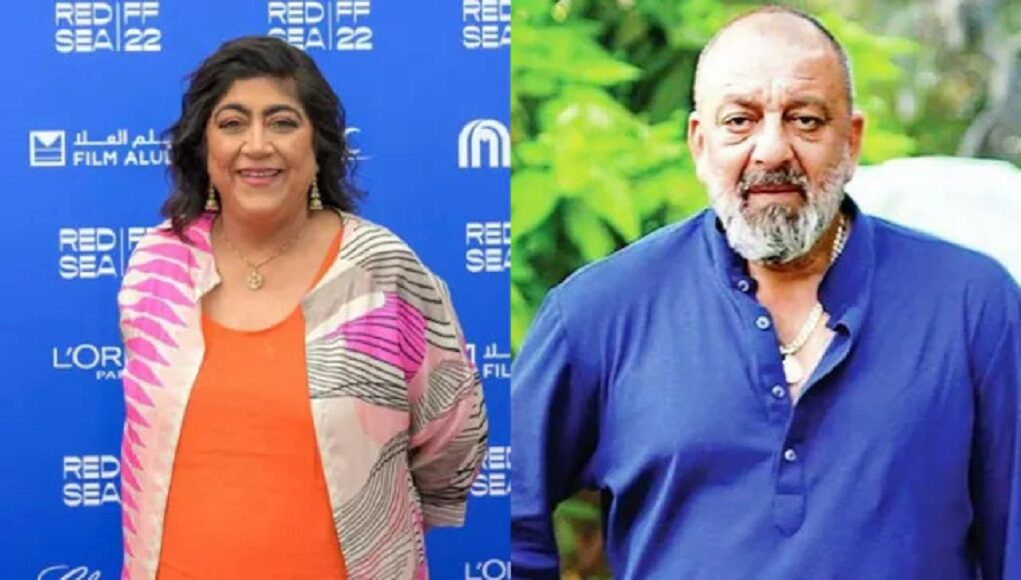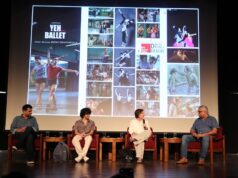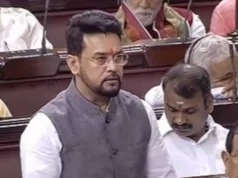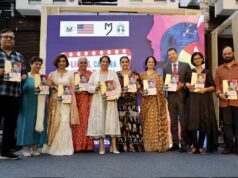British film director Gurinder Chadha said that she always wanted to become a commercial film maker so that her work reached larger audiences, but in spite of making commercial films she still has to struggle in convincing people to finance her.
In conversation with the Kenya-born British film director Gurinder Chadha at the Red Sea International Film Festival on her journey in the entertainment industry from a BBC journalist to a filmmaker, growing up in Britain, wanting to make a Punjabi film with actor Sanjay Dutt and why it is still a struggle in convincing people to finance a film even if it is very commercial.
Tell us about your journey in the entertainment industry as a director.
Growing up in Britain, there were many British who used to look at us with pity as if we were some poor thing suffering from a culture crisis. So, I realised that people who are mono-cultural or mono-lingual have a hard time understanding the mentality of those who are multilingual or multi-cultural. Britain changed a lot from what I experienced when I was growing up. The first sentences that I spoke were I want likhna (I want to write) and I want roti khana (I want to eat food). So my first sentences were an English and Punjabi mix. All my films hence are about taking back cultural experience at the crossroads of different cultures of different generations, but not telling those stories in a problematic way, but telling them in a human way from my perspective. And that is the reason my films like ‘Bend It Like Beckham’ and others have travelled so well around the world.
I started off as a BBC film reporter, but I found that I couldn’t do what I wanted to do, but will have to do what I was told to do. This gave me the skills that we have to control narratives and control it in a way that is accessible to a complete audience. I realised that I couldn’t control the narrative as a BBC journalist. But I realised that as a filmmaker I can control narrative, but in a way that is accessible to the audience.
During my time in Britain, there were many filmmakers who were making art films. But I never went to film school. I came from a background in journalism, but I made a decision when I became a filmmaker that the people in my film must enjoy the films as much as the audience. So, I was very commercial in that respect. I wanted to reach large audiences and that is still my intention. I still struggle in convincing people to finance what I want to do which is very commercial. But that is the most difficult part of movie making.
On making stars…
What is great is that I have launched bright careers. I made stars. Kiara Knightly came in and auditioned. That was the first big film and then recently the next James Bond. It will be Aaron Taylor-Johnson who was in my film Angus, Thongs and Perfect Snogging. I had to fight with Paramount Studios who made that film. I said, ‘I really want to cast this guy. I think he’s huge. He’s going to be a great talent, a big star’. And they were like, Well, no one knows who he is. And I said, ‘I know. But trust me and then I cast him. And of course, now, if he becomes the next Bond, I will take complete credit.
Where has the women’s game come in terms of popularity and visibility of the media considering that Bend It Like Beckham has completed twenty years?
Many women champions had later said that they had gone into playing football only after watching ‘Bend it like Beckham. I am very proud of that. Even in India there was a Bend It Like Beckham league and I was talking to a person who is looking to create sports development particularly in Punjab to train athletes for world leagues and we will have trained athletes coming up from Punjab. I have seen women in the Middle- East play football too. I feel it’s a great leveller sport and I think that women are getting their due on the sports bit now.






